Nurturing Your Health After Delivery: Postnatal Care Explained
The postnatal period is a critical period of time following childbirth, when both mother and baby need special care and support. During this time, the mother’s body will be adjusting to the changes of pregnancy and birth, while the baby will be adapting to life outside the womb. It is important to ensure both mother and baby receive the necessary care, attention and support to help them through this period.
Our Most Common Topics
Breastfeeding
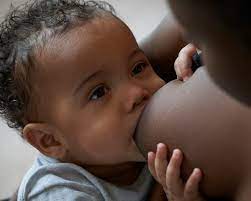
Breastfeeding is an incredibly rewarding experience for mothers and their babies. It provides essential nutrients for growth and development and helps strengthen the bond between mother and child. Breastfeeding has many benefits, such as improved immunity and digestion, as well as enhanced cognitive and emotional development. It can also help mothers lose weight and reduce the risk of certain cancers. With the right support and guidance, breastfeeding can be a beautiful and fulfilling experience for both mother and baby. Click to find out more.
EXPRESSING BREAST MILK

Expressing breastmilk is a wonderful way to provide nourishment to your child without having to directly breastfeed. It is an important part of the breastfeeding journey and can provide many benefits for both mom and baby. Expressing breastmilk allows you to store and feed your baby breastmilk from a bottle, which is convenient for parents who need to return to work, travel, or just need a break from feeding. It can also increase your milk supply, provide comfort and relief to baby, and can help you bond with your baby. Click to find out more.
Pad Changing
Sanitary pads are an essential part of women’s hygiene. They provide protection and comfort, helping to maintain a healthy lifestyle. Changing your sanitary pad regularly is essential for both health and comfort. This article will provide an overview of the sanitary pad changing process, including the various types of pads, the frequency of changing pads, and any tips and tricks to make the process easier. Click to find out more.
Postpartum Depression

Postpartum depression is an all-too-common issue among new mothers. It is a type of depression that can occur in the weeks or months after giving birth. Symptoms of postpartum depression can range from feeling overwhelmed and tired to feeling hopeless and having thoughts of harming oneself or the baby. It is important to recognize the signs and symptoms of postpartum depression and seek help if you or someone close to you is struggling with it. With the right support and treatment, postpartum depression can be managed and overcome. Click to find out more.
POSTPARTUM discomforts
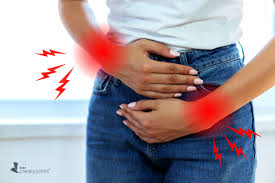
Experiencing discomforts during the postpartum period is a common yet significant aspect of the journey to motherhood. From vaginal pain and swelling to fatigue and emotional changes, navigating these challenges requires understanding and support. This phase, following childbirth, is marked by physical and emotional adjustments as the body heals and adapts to new responsibilities. By recognizing and addressing these postpartum discomforts, individuals can prioritize self-care and seek appropriate medical guidance to ensure a smooth recovery and transition into parenthood. Click to find out more.
POSTPARTUM HEMORRHAGE
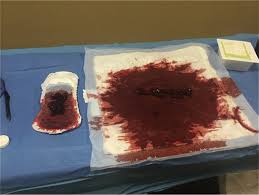
Postpartum hemorrhage (PPH) is a serious medical condition that can happen to a woman shortly after giving birth. It is the most common cause of maternal mortality and can happen to both first-time and experienced mothers. PPH is defined as the loss of more than 500 ml of blood during or after delivery. It can occur during labor, delivery, or up to 24 hours after delivery and can cause severe health complications. It is important to be aware of the symptoms of PPH, know the risk factors, and seek medical attention immediately if you suspect you are experiencing PPH. Click to find out more.
postpartum practices
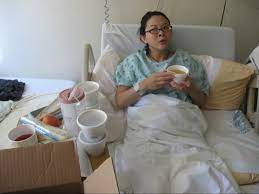
The postpartum period is a time of both tradition and change. During this time, new mothers often experience a range of emotions, physical changes, and lifestyle adjustments. While some postpartum practices are based on ancient customs, modern society encourages mothers to embrace new approaches to parenting and self-care. In this article, we will explore the balance between traditional and modern postpartum practices, and how both can help ensure a healthy and positive transition into motherhood. Click to find out more.
Postpartum Psychosis

Postpartum psychosis is a serious mental health disorder that can affect new mothers after giving birth. It is a rare condition, occurring in one to two out of every 1,000 births, and can be very distressing for the mother and her family. Symptoms may include confusion, delusions, hallucinations, sleep disturbances, disorganized behavior, and even thoughts of harming oneself or the baby. It is important to recognize the signs and symptoms of postpartum psychosis and receive timely treatment to prevent long-term complications. Click to find out more.
Postpartum warning signs

Understanding postpartum warning signs is crucial for new mothers as they navigate the challenges of childbirth and early motherhood. Recognizing symptoms like hemorrhaging, severe headaches, and dizziness can help ensure prompt medical attention and proper care during this sensitive time. Click to find out more.
PTSD
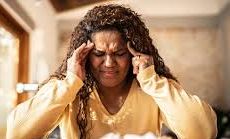
Post traumatic stress disorder (PTSD) is an anxiety disorder that can affect women after childbirth. The condition is often caused by traumatic, overwhelming experiences during the labor and delivery process. Symptoms of PTSD can include flashbacks, intrusive thoughts, nightmares, and emotional numbing. Women who suffer from PTSD after childbirth may also experience difficulty bonding with their newborn and may feel overwhelmed or unable to cope with their new role as a mother. Treatment options for PTSD in women after childbirth include cognitive behavioral therapy, psychotherapy, and medication. With the right support, women can learn to cope with their PTSD symptoms and enjoy their new role as a mother. Click to find out more.
Sitz Bath

A shallow tub filled with warm water and special ingredients to help soothe the perineal area. A sitz bath is an effective and soothing postpartum remedy for new mothers. It is a shallow bath that is used to help heal and provide relief from the discomforts associated with childbirth. The warm water helps relax sore muscles, reduce inflammation, and can even help reduce the risk of infection. Sitz baths can provide immediate relief and help speed up the recovery process. They can be used in conjunction with other therapies, such as over-the-counter medications or physical therapy to provide maximum relief. Taking a sitz bath can be a simple and effective way to ease the discomfort of postpartum recovery and help ensure the best possible outcome for both mother and baby. Click to find out more.
Storing and Thawing of Breast Milk
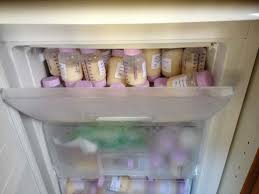
Breast milk is widely considered to be the best source of nutrition for infants and babies, and it’s important to store and thaw it in a safe and effective way. Storing and thawing breast milk can be done in a variety of ways, and it’s important to understand the best practices for doing so. This guide will give an overview of the best methods for storing and thawing breast milk, so that you can ensure your infant or baby is getting the best possible nutrition. Click to find out more.
The Postpartum Period

The postpartum period is a time of immense physical and emotional changes for a new mother. It is a time of recovery for the body, as the mother’s body adjusts to the changes it underwent during pregnancy and delivery. It is also a time of adjustment for the new family, as they work to establish routines and care for the needs of the newborn. During this time, women may experience a range of emotions, including happiness, exhaustion, anxiety and even depression. There are many resources available to help women cope with the changes they are experiencing during this time. Click to find out more.
The Postpartum Unit

Welcome to the postpartum unit at our hospital! On this unit the women are managed after they deliver their baby. This unit is designed to provide comprehensive care to new mothers, their infants, and their families. The healthcare professionals provide specialized care for mothers and their newborns, including breastfeeding support, lactation consultations, and postpartum education. The team of nurses and physicians are dedicated to providing the highest quality of care and support to ensure a safe and healthy transition from pregnancy to parenthood. They are here to help you and your family create lasting connections and memories during this special time. Click to find out more.


